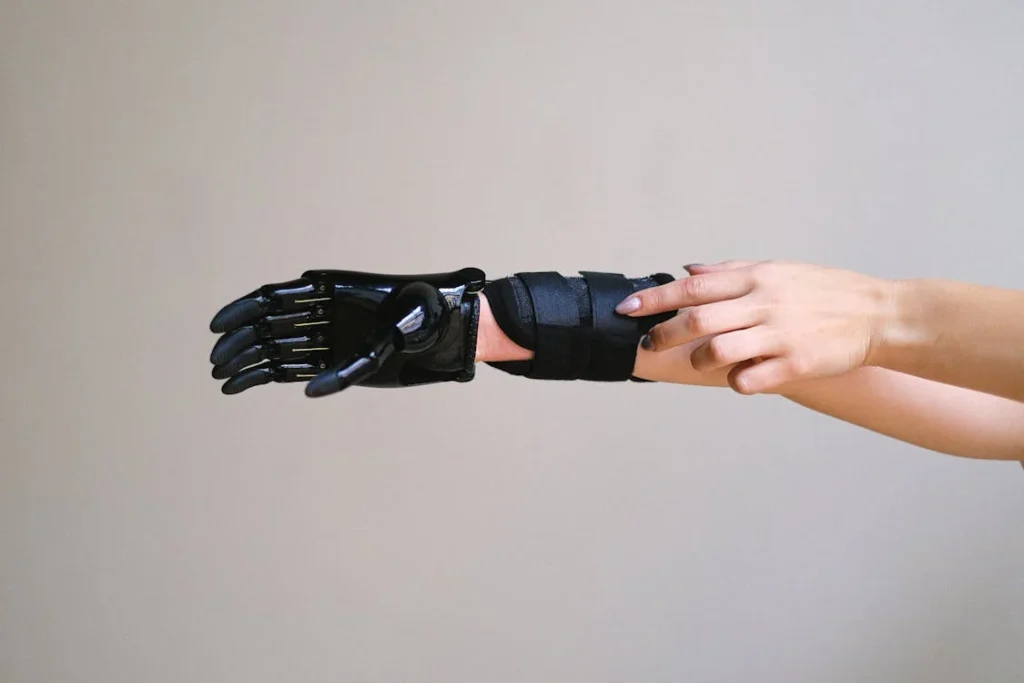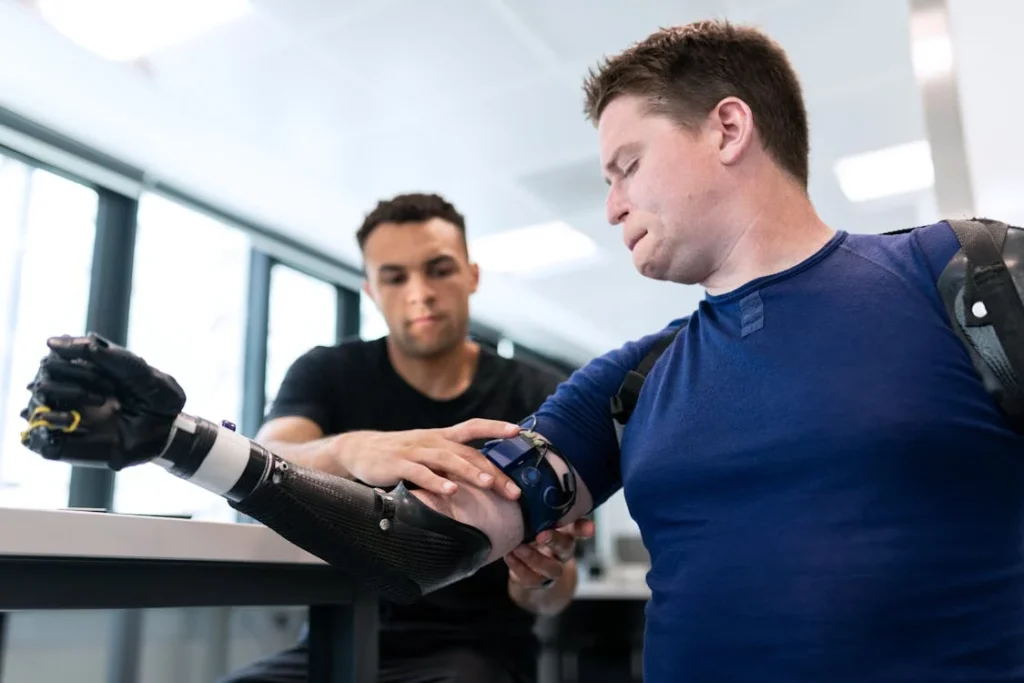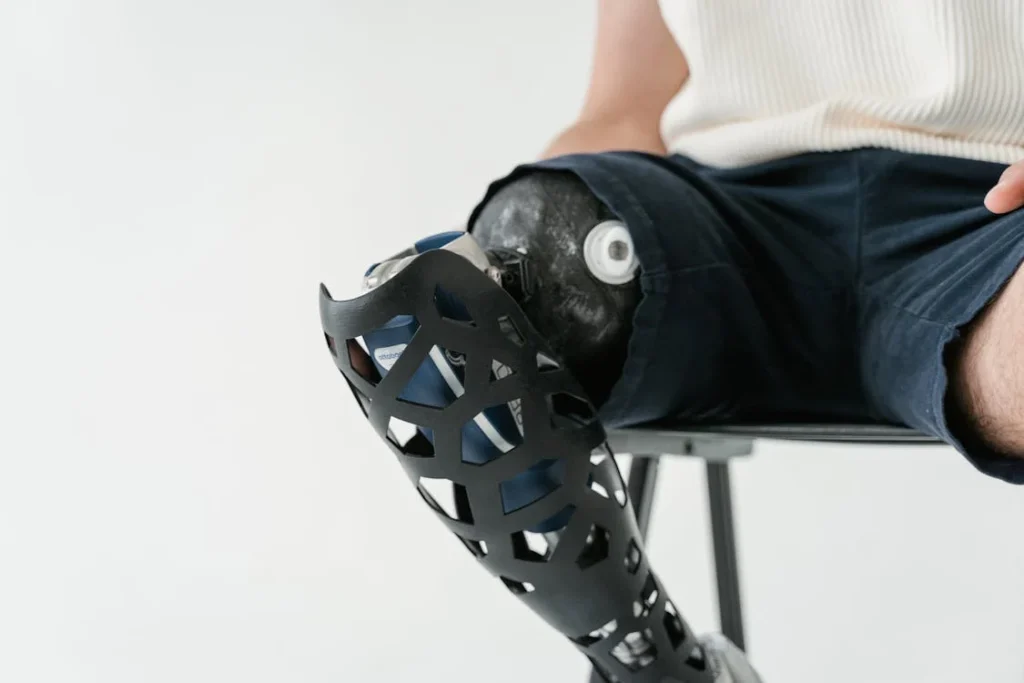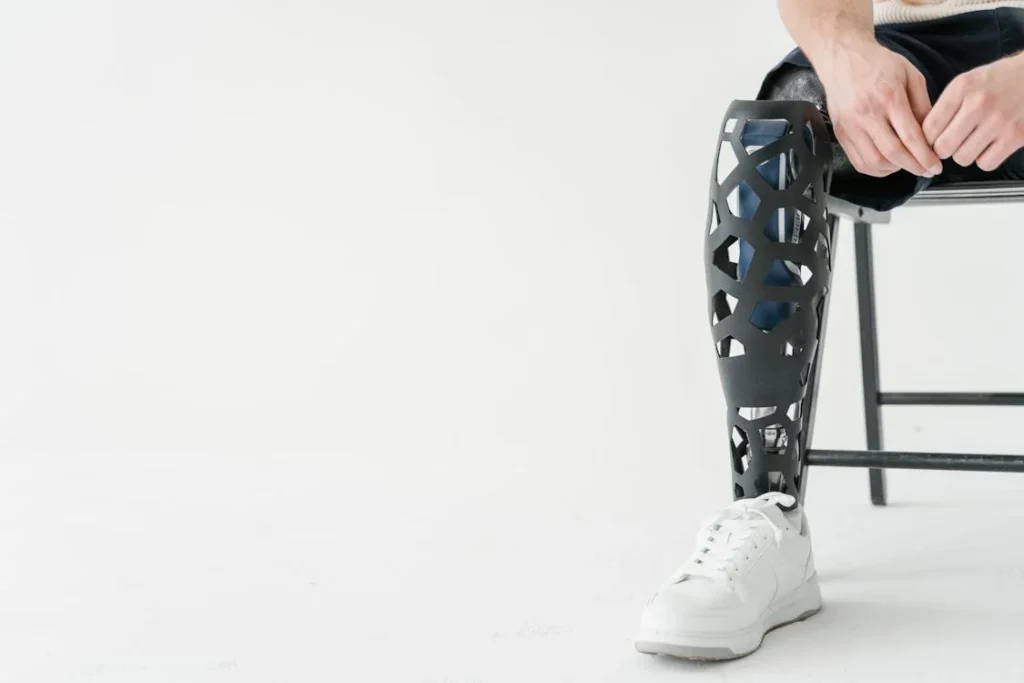Keeping your prosthetic device clean isn’t just about appearance—it’s about maintaining its functionality, comfort, and durability. Regular cleaning prevents odors, reduces the risk of skin irritation, and ensures the device performs as it should for a longer time. But with so many cleaning products out there, how do you know what’s best for your prosthetic?
This guide is here to help. We’ll walk you through the safest and most effective cleaning products tailored for prosthetic devices, along with practical tips to keep your prosthetic in excellent condition. Whether you’re a first-time user or a seasoned prosthetic wearer, you’ll find actionable advice to make caring for your device easier and stress-free.
Why Cleaning Your Prosthetic Device Matters

Your prosthetic device is an integral part of your daily life. It enhances mobility, supports independence, and provides comfort when properly maintained. However, like any other device in regular use, it is prone to accumulating sweat, dirt, and bacteria over time.
These factors not only compromise hygiene but can also affect the skin in contact with the prosthetic, leading to irritation or even infections.
A clean prosthetic device ensures that it remains safe and comfortable to use. Regular cleaning also prevents odors and extends the lifespan of the device, saving you from frequent repairs or replacements.
By choosing the right cleaning products, you’re not just caring for your prosthetic—you’re investing in your overall well-being.
Characteristics of the Best Cleaning Products
When it comes to selecting cleaning products for your prosthetic device, safety should always be the top priority. Harsh chemicals, abrasive substances, or products not specifically designed for prosthetics can damage the device or harm your skin.
The best cleaning products are gentle yet effective, ensuring that they remove dirt, oils, and bacteria without compromising the integrity of the materials used in your prosthetic.
Look for cleaning agents that are fragrance-free, as strong scents can sometimes cause irritation. Hypoallergenic options are ideal for ensuring compatibility with sensitive skin.
Products that are easy to rinse off and leave no residue are preferred, as residue can accumulate and affect the fit or comfort of your prosthetic.
It’s also important to consider the material of your prosthetic device. Some materials, like silicone liners, require specific cleaning agents to avoid damage, while carbon fiber or plastic components may have different needs.
Always consult the manufacturer’s guidelines to understand what products are safe for your prosthetic.
Gentle Cleaning for Everyday Maintenance
Routine cleaning is key to keeping your prosthetic hygienic and in good condition. For daily maintenance, a mild, pH-balanced soap and warm water often work wonders. This simple combination effectively removes surface dirt and sweat without causing wear or tear.
Make sure to use a soft cloth or sponge when cleaning your prosthetic to avoid scratching or damaging the surface. After cleaning, rinse thoroughly to remove all soap residues, as leftover soap can attract more dirt or cause skin irritation.
Allow your prosthetic to dry completely before reassembly or wearing it, as moisture can promote bacterial growth or affect the fit of your device.
Alcohol-based wipes are another practical option for quick clean-ups, especially when you’re on the go. Ensure the wipes are free from harsh chemicals or fragrances to avoid damaging your prosthetic or irritating your skin.
These wipes can be especially useful for cleaning high-contact areas like the socket or straps, where sweat tends to accumulate.
Hygiene and Skin Health
The skin is in constant contact with the prosthetic socket or liner, and this area is particularly susceptible to issues if hygiene is neglected.
Sweat, oil, and bacteria can accumulate, leading to skin irritation, rashes, or even infections. Regular cleaning ensures that these contaminants are removed, allowing the skin to breathe and remain healthy.
Performance and Functionality
Dirt and debris can interfere with the mechanical components of a prosthetic device, especially for advanced models that incorporate electronics or moving parts. Over time, even small amounts of residue can lead to stiffness, misalignment, or reduced responsiveness.
Enhancing Durability
Prosthetic devices are an investment, and regular cleaning plays a crucial role in protecting that investment. Accumulated grime can weaken materials, cause discoloration, or lead to premature wear and tear.
Silicone liners, for example, can degrade if exposed to oils and sweat over time, reducing their effectiveness and comfort.
Deep Cleaning for Enhanced Hygiene

While daily cleaning is essential, deep cleaning your prosthetic device on a regular basis is equally important. Deep cleaning ensures that hard-to-reach areas are free from grime, bacteria, and other buildups that daily maintenance might miss.
Depending on your usage and environment, a weekly or bi-weekly deep cleaning routine is recommended.
For silicone liners or gel components, use specialized cleaning solutions specifically designed for these materials. These products are formulated to remove oils and bacteria without compromising the elasticity or structure of the liner.
Apply the cleaner with a soft cloth, working it gently into the surface, then rinse thoroughly with warm water. Allow the liner to air dry completely before reassembling it with the prosthetic.
If your prosthetic includes mechanical joints or metal parts, consider using a mild degreaser or specialized prosthetic cleaning solution to remove any buildup in the moving components.
Be cautious not to oversaturate these parts, as excess liquid can seep into the joints and affect their functionality. A damp cloth is often enough to clean these areas effectively.
For prosthetics with fabric straps or padding, it’s crucial to keep these components clean to prevent odors and skin irritation. Handwashing the fabric parts with mild detergent and warm water is often the best approach.
Avoid using bleach or fabric softeners, as these can weaken the material over time. Once cleaned, allow the straps to air dry completely to maintain their shape and strength.
Caring for Skin in Contact with Your Prosthetic
While cleaning your prosthetic is vital, taking care of the skin that comes into contact with the device is just as important.
Your skin can be affected by sweat, friction, and pressure from wearing the prosthetic, which is why a clean device and proper skincare routine go hand in hand.
After removing your prosthetic, gently clean the skin in contact with the device using a mild soap and lukewarm water. Pat the area dry with a soft towel, avoiding any rubbing that could irritate the skin.
Apply a fragrance-free, hypoallergenic moisturizer to keep the skin hydrated and prevent dryness or chafing.
Inspect your skin regularly for any signs of irritation, redness, or sores. If you notice any unusual changes, consult a healthcare professional or prosthetist promptly. Sometimes, these issues can be resolved by adjusting the fit of your prosthetic or modifying your cleaning routine.
Strategizing Your Deep-Cleaning Routine
When planning deep-cleaning sessions, focus on timing and frequency. For individual users, scheduling a deep clean once or twice a week is ideal, depending on the activity level and climate.
For businesses managing prosthetic services, establish a clear schedule for every device in use, whether for patient trials or demonstrations. Keeping a logbook or a digital record can help track when each device was last cleaned and ensure no steps are skipped.
Use a cleaning process that incorporates disassembly wherever possible. By carefully removing removable parts like liners, straps, or detachable joints, you can access hidden areas where dirt and bacteria tend to accumulate.
This is particularly important for active users or those in warmer climates where sweat can exacerbate the buildup of bacteria and odors.
Choosing Advanced Cleaning Products
For enhanced hygiene, look beyond general-purpose cleaning agents. Opt for products that are medically tested and tailored for prosthetic materials.
Enzyme-based cleaners, for instance, are excellent for breaking down biological contaminants such as sweat or skin oils without damaging sensitive surfaces.
For businesses offering prosthetic maintenance services, investing in professional-grade cleaning agents ensures that devices return to users in pristine condition.
Incorporate antimicrobial treatments into your cleaning routine. These sprays or wipes leave a protective layer on the device, reducing the chances of bacterial growth between cleaning sessions.
Incorporating Sterilization Techniques
For a deeper level of hygiene, especially for clinics or businesses managing multiple prosthetic devices, consider incorporating sterilization methods. UV sterilizers are a powerful, non-invasive solution to kill bacteria and viruses without using water or chemicals.
These devices are especially useful for disinfecting non-porous surfaces like sockets or carbon fiber components.
Steam cleaning can also be an effective method for prosthetics with fewer electronic components. The heat penetrates deeply, removing grime and neutralizing bacteria.
Deep Cleaning for Long-Term Maintenance

While daily cleaning keeps your prosthetic fresh, it’s important to perform a more thorough cleaning at regular intervals. Deep cleaning ensures that any hidden dirt, oils, or bacteria are removed, especially in areas like joints, straps, or liners that might be harder to clean during your daily routine.
For deep cleaning, specialized prosthetic cleaning solutions are highly recommended. These products are designed to break down stubborn residues while protecting the material of your prosthetic.
They are particularly effective for cleaning silicone liners, which are prone to absorbing sweat and oils. Warm water combined with a specialized cleaner can help you achieve a deep clean without risking damage to sensitive components.
During deep cleaning, you’ll want to disassemble parts of your prosthetic, as recommended by your manufacturer or prosthetist. This allows you to reach areas that are typically inaccessible during routine cleaning.
Pay close attention to any crevices, as these are often hotspots for bacteria and odor buildup.
After cleaning, ensure all parts are thoroughly rinsed and dried before reassembly. Using a lint-free cloth can help speed up the drying process and prevent particles from sticking to the surface.
Always handle each part carefully to avoid scratches or damage during the cleaning process.
Protecting Your Skin While Cleaning
Maintaining your prosthetic isn’t just about the device itself—your skin also plays a crucial role in the overall experience. The skin in contact with your prosthetic, especially around the socket, is prone to irritation if cleaning routines or products are unsuitable.
Start by washing the skin area daily with a gentle, unscented cleanser and lukewarm water. This reduces the chances of sweat and bacteria causing irritation. Avoid using hot water or harsh soaps, as they can dry out your skin and make it more vulnerable to discomfort.
When cleaning your prosthetic, always wear gloves if you’re using any solution that could irritate your skin. If you notice any redness, dryness, or itchiness after wearing your prosthetic, consult your prosthetist.
Sometimes, the issue may be linked to residual cleaning product left on the device.
Odor Control and Deodorizing
Odors can sometimes become an issue with regular prosthetic use, particularly in warm climates or during physical activity. Using a prosthetic deodorizer specifically designed for liners and sockets can help manage this.
These products are usually alcohol-free and formulated to neutralize odors without leaving behind harmful residues.
Baking soda is another effective and natural solution for tackling odors. Sprinkling a small amount inside removable liners or non-sensitive parts of your prosthetic can absorb unpleasant smells.
However, always ensure that the baking soda is completely removed before reassembling or using your prosthetic to prevent discomfort.
Avoiding Common Cleaning Mistakes

When caring for your prosthetic device, it’s important to steer clear of common cleaning errors that could harm its functionality or shorten its lifespan.
One mistake people often make is using household cleaning products that contain harsh chemicals. While these products might seem effective for general cleaning, they can degrade sensitive materials like silicone or plastic and may cause skin irritation.
Always stick to cleaning solutions specifically designed for prosthetics or mild, unscented soaps.
Another error to avoid is excessive scrubbing. Using abrasive tools like stiff brushes or scouring pads can scratch the surface of your prosthetic, making it less comfortable to wear.
Scratches can also trap dirt and bacteria, leading to hygiene issues over time. Instead, opt for a soft cloth or sponge to clean your device gently but effectively.
Skipping regular cleaning is another pitfall. Even if your prosthetic doesn’t appear visibly dirty, sweat and bacteria can accumulate in hard-to-reach areas.
Neglecting cleaning routines can lead to skin irritation and unpleasant odors, as well as reduced functionality of the prosthetic over time.
Finally, never use excessive heat to dry your prosthetic. Air-drying is the safest option, as high heat from blow dryers or radiators can warp certain materials or weaken adhesives. If you’re in a hurry, patting the device dry with a lint-free cloth is a safer alternative.
Storing Your Cleaning Products
Having your cleaning supplies organized and easily accessible can make maintaining your prosthetic a breeze. Designate a specific area in your home to store your cleaning products, such as a shelf or small cabinet near where you keep your prosthetic.
This ensures that you’re always prepared for both daily maintenance and deep cleaning sessions.
Ensure your cleaning products are stored in a cool, dry place, away from direct sunlight or excessive humidity. Exposure to these elements can alter the effectiveness of certain cleaning agents, reducing their ability to sanitize your prosthetic properly.
Keeping products in their original packaging also helps you refer to usage instructions and safety guidelines when needed.
If you travel often, consider putting together a portable cleaning kit. Include essentials like mild soap, alcohol-free wipes, a soft cloth, and a small bottle of specialized cleaner. Having these items on hand will allow you to care for your prosthetic no matter where life takes you.
Maintaining a Cleaning Routine
Consistency is key to keeping your prosthetic in optimal condition. Establishing a cleaning routine that fits into your daily schedule ensures your device remains hygienic and fully functional.
For instance, cleaning your prosthetic at the same time every day—such as before bedtime—can make the process feel like second nature.
If your prosthetic includes removable liners or straps, clean them separately according to the manufacturer’s recommendations. Addressing each component individually ensures thorough cleaning and reduces the risk of overlooking hidden dirt or bacteria.
Don’t forget to schedule regular check-ins with your prosthetist. They can offer advice on maintaining your specific device and may recommend additional cleaning techniques or products suited to your needs.
The Role of Professional Maintenance

While daily and deep cleaning are essential, regular professional maintenance is just as important. A prosthetist can thoroughly inspect your device for any signs of wear or damage that might not be visible to you.
This includes checking for loose screws, worn-out liners, or malfunctioning joints. Addressing these issues early can prevent more significant problems down the line.
Professional maintenance may also include advanced cleaning techniques, such as ultrasonic cleaning, which can remove dirt and bacteria from hard-to-reach areas.
These methods ensure your prosthetic remains in top condition and extends its lifespan. Make it a point to schedule professional maintenance at least once or twice a year, or as recommended by your prosthetist.
When you visit for maintenance, take the opportunity to discuss your cleaning routine. Your prosthetist can confirm if the products and methods you’re using are effective and suggest adjustments if needed.
They can also provide guidance on storing and handling your prosthetic to minimize wear and tear.
Eco-Friendly Cleaning Alternatives
If you’re environmentally conscious, you’ll be pleased to know that there are eco-friendly cleaning solutions available for your prosthetic. Many brands now offer biodegradable cleaning agents made from natural ingredients that are safe for both your device and the planet.
These products often come in recyclable packaging, further reducing their environmental impact. You can also create simple cleaning solutions at home using common, non-toxic ingredients.
A mixture of water and a small amount of white vinegar can be an effective cleaner for some prosthetic materials, as long as you rinse thoroughly to avoid any lingering smell. Baking soda, as mentioned earlier, is another excellent natural deodorizer.
Before switching to any alternative cleaning method, consult your prosthetist to ensure it is compatible with your specific prosthetic materials. Using an unsuitable solution, even if eco-friendly, could inadvertently damage your device.
Setting Up a Comprehensive Maintenance Protocol
For clinics and businesses, establishing a structured maintenance protocol is key to delivering consistent results. Start by creating a detailed checklist tailored to the prosthetic models and materials your business handles.
This checklist should cover every aspect of maintenance, including cleaning, inspection, calibration, and repairs. Ensuring that every step is documented helps avoid overlooked issues and provides transparency for users.
Integrate regular maintenance schedules into your service offerings. For example, you could provide users with an annual maintenance plan, which includes periodic checkups, deep cleaning, and minor adjustments.
Not only does this enhance device performance, but it also fosters trust and loyalty, as users see that their well-being is a priority.
Leveraging Advanced Diagnostic Tools
Investing in diagnostic tools allows businesses to identify issues with prosthetic devices that might not be visible during routine inspections.
Tools like pressure sensors, alignment systems, and torque analyzers can reveal wear or imbalances that could compromise the user’s comfort or safety.
Offering advanced diagnostics as part of your professional maintenance services adds value and sets your business apart from competitors.
For instance, after performing diagnostics, you can provide a detailed report to users, highlighting areas that need attention and recommending solutions. This approach builds credibility and ensures users are fully informed about their device’s condition.
Enhancing Durability Through Repairs and Adjustments
One of the critical aspects of professional maintenance is addressing wear and tear before it escalates into significant issues. Minor cracks, loose joints, or worn straps can negatively affect a prosthetic’s performance if left unattended.
Businesses that proactively offer repairs and adjustments as part of their maintenance services demonstrate a commitment to extending the lifespan of their devices.
When performing repairs, focus on using high-quality replacement parts that match the original specifications. For businesses, partnering with trusted suppliers ensures access to reliable components that maintain the integrity of the prosthetic.
Consider offering a warranty on repairs to reassure users about the quality of your service.
Calibration is another essential part of maintenance, especially for advanced prosthetic devices with electronic or biomechanical components.
Misalignments or malfunctions in sensors, motors, or joints can significantly impact performance. Ensuring precise calibration not only enhances functionality but also prevents further wear on other parts of the device.

Educating Users on the Importance of Maintenance
Education is a powerful tool for fostering long-term relationships with prosthetic users. Businesses can empower their clients by providing resources that explain the importance of regular maintenance and how it contributes to the longevity of their device.
Workshops, webinars, or personalized consultations can be excellent platforms for educating users. For example, you could organize sessions on identifying early warning signs of wear, such as unusual noises, discomfort, or reduced functionality.
This knowledge allows users to seek professional maintenance services proactively, preventing small issues from escalating.
Providing take-home materials, such as care guides or maintenance calendars, further reinforces the value of professional maintenance. These resources serve as a reminder for users to prioritize their prosthetic care and stay engaged with your services.
Creating a Feedback Loop for Continuous Improvement
For businesses, incorporating user feedback into your maintenance services can help refine your offerings and improve customer satisfaction.
After each maintenance appointment, invite users to share their experiences and provide suggestions for improvement. This feedback loop helps identify any gaps in your process and ensures your services continue to meet user needs.
Consider offering incentives for feedback, such as discounts on future services or free checkups. Engaging users in this way demonstrates your commitment to continuous improvement and strengthens their trust in your business.
Marketing Maintenance as a Value-Added Service
For businesses in the prosthetics industry, professional maintenance can be a key differentiator. Promote your maintenance services as a value-added offering that goes beyond routine care.
Highlight the benefits, such as improved comfort, reduced repair costs, and extended device lifespan, to demonstrate how your services enhance the overall user experience.
Use testimonials and success stories from satisfied clients to build credibility and showcase the impact of your maintenance programs.
Incorporate these into your marketing materials, whether on your website, social media, or print brochures, to attract new users and establish your reputation as a reliable partner in prosthetic care.
By prioritizing professional maintenance and strategically marketing its benefits, businesses can foster lasting relationships with users and reinforce their position as leaders in the prosthetics industry.
Proactive care not only enhances the functionality and lifespan of prosthetic devices but also ensures that users feel confident, supported, and valued every step of the way.
Conclusion
Caring for your prosthetic device is about more than just maintaining its appearance—it’s about ensuring your comfort, health, and mobility. By choosing the right cleaning products and following a consistent routine, you can keep your prosthetic in excellent condition for years to come. Whether you’re using mild soap for daily maintenance, specialized cleaners for deep cleaning, or professional services for advanced care, every step contributes to a better prosthetic experience.
At Robobionics, we understand the importance of keeping your prosthetic device clean and functional. That’s why we offer expert advice and comprehensive support for our users. If you’re looking for personalized guidance or want to learn more about prosthetic maintenance, we’re here to help.
Book a free consultation with Robobionics today to discuss your prosthetic care needs. Together, we can ensure your device stays in perfect condition, giving you the confidence and independence you deserve!



